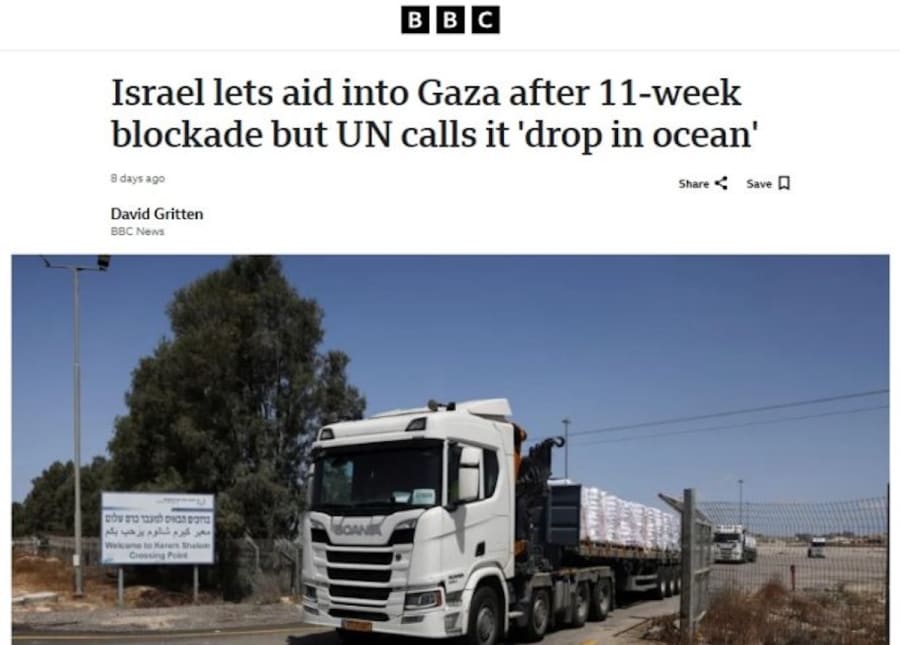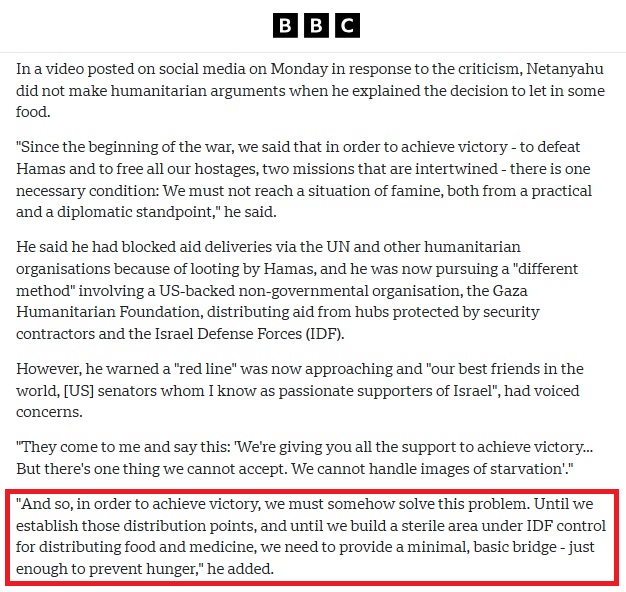An example of why accuracy in BBC reporting matters

Eylon Levy recently posted a social media thread which provides an illustration of the consequences of accuracy failures in BBC reporting.
As reported by Levy, on May 20th the UK Foreign Secretary made a statement in Parliament which he opened by telling the house that: [emphasis added]
“With permission, Madam Deputy Speaker, I will make a statement on Israel and the Occupied Palestinian Territories.
This weekend, the Israeli Defence Force started a new, extensive ground operation throughout Gaza, Operation Gideon’s Chariot [sic]. Five Israeli divisions are now operating there.
Prime Minister Netanyahu says that they are going to take control of the Strip letting only minimal amounts of food reach Gazans. Madam Deputy Speaker I quote Prime Minister Netanyahu – “just enough to prevent hunger.”
Fewer than ten trucks entered Gaza yesterday. The UN and WHO have issued stark warnings of the threat of starvation hanging over hundreds of thousands of civilians. Madam Deputy Speaker, this is abominable.”
However, as noted by Levy, that quote is inaccurate.

In a video message put out on May 19th which was covered by local media outlets, Netanyahu said:
“…until we build the sterile area under IDF control for the distribution of food and medicine, we need to provide some kind of bridging – minimal, basic bridging – so that there will not be hunger.”

Searching for the source of David Lammy’s “quote”, Levy discovered that it appears in a BBC News website report published on May 19th, originally under the headline “Gaza: Israel allowing in food after pressure from allies, PM says”.
All versions of that report by David Gritten – which currently appears under the title “Israel lets aid into Gaza after 11-week blockade but UN calls it ‘drop in ocean’” – include the following highlighted section:

Clearly the BBC did not fact check that inaccurately translated “quote” before promoting it around the world on its website. Obviously too, the UK Foreign Secretary’s aides failed to confirm the information provided by their national broadcaster.
The outcome of those failures was that Lammy misled members of parliament with a false “quote” supposedly stating that Israel would let food into Gaza in “minimal” amounts “just enough to prevent hunger”.
This example of the BBC’s failure to adhere to its own standards of accuracy demonstrates how that compromises the BBC’s obligation to “act in the public interest”, including by “providing information that assists people to better comprehend or make decisions on matters of public importance”. Mistranslating the words of a foreign leader clearly does not help British MPs and ministers make appropriate decisions.

Hadar Sela was born in the north of England and has lived in Israel for over three decades. She has a special interest in the influence of the media on the British public’s perceptions of the Middle East and the Islamist networks operating in the UK and has written pre-emptive reports on several anti-Israel campaigns, including the flotillas and the Global March to Jerusalem in March 2012. Hadar’s work has been published in the Jerusalem Post, The Algemeiner, The Commentator, MERIA Journal and at Harry’s Place, among others.













